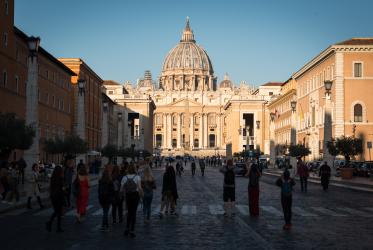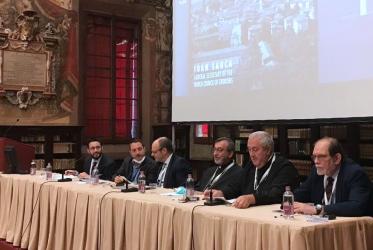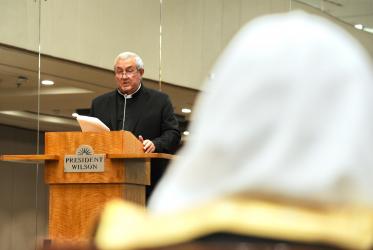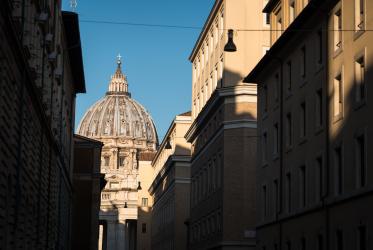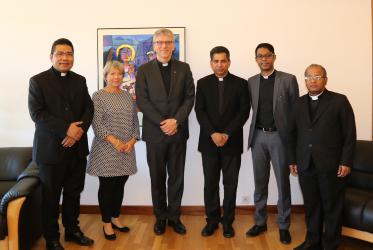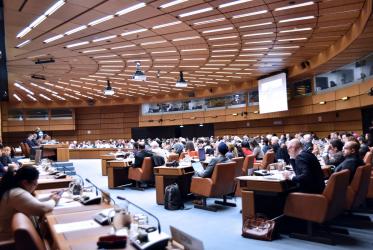Displaying 1 - 13 of 13
Tveit: “What does mutual accountability mean?”
15 November 2018
Turning plans into action to prevent incitement to violence
14 February 2018
What does ‘prudence’ mean for dialogue and peace-building?
16 November 2016
Momentum builds for ban on nuclear weapons
16 December 2014
